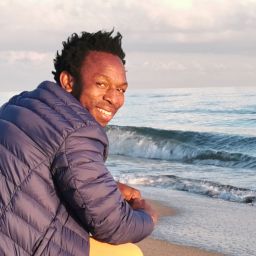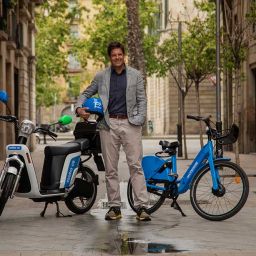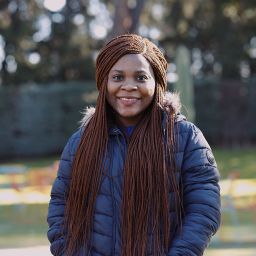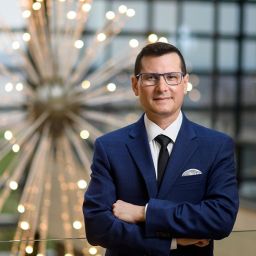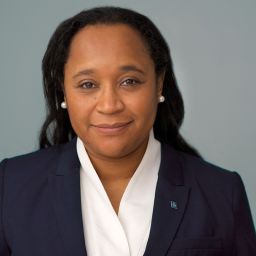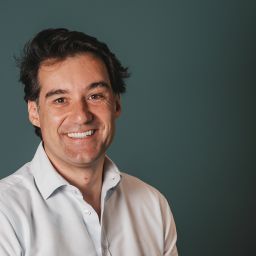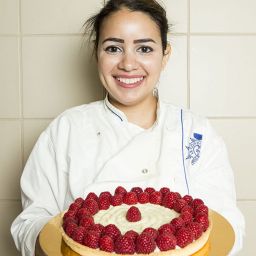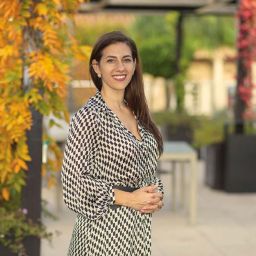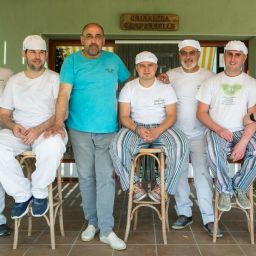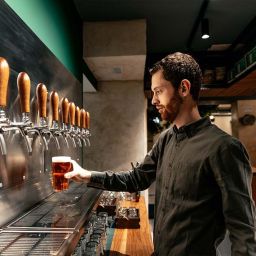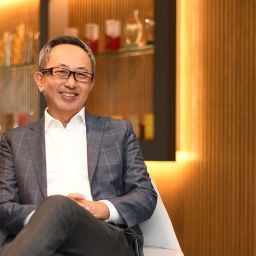Five entrepreneurs have turned their passion for gastronomy into Scoolinary, the world’s largest online cooking school. The Scoolinary team is: Vicente Fortea (production director), Maria Parareda (director of content), Martin Caleau (director of technology), Lorena Hidalgo (director of marketing & communication) and Jordi Ber (CEO). All of them are part of IESE’s School of Founders (SoF).
It has been said, “Cooking is the alchemy of love.” In 2020, that alchemy came together in the form of Scoolinary, an online cooking school now adding one new course per week to its growing catalog of more than 300 courses, with 6,500 lessons, 550 hours of video and 2,000 recipes and counting.
Scoolinary was conceived in the midst of the COVID-19 pandemic, when half the planet was locked down at home. A lot of people suddenly decided to try their hand at cooking all kinds of new recipes, watching video tutorials online. Remember the global craze for bread baking?
At the time, serial entrepreneur Jordi Ber was looking to create “a purpose-driven, global, scalable project aimed at people accustomed to working with their hands.” In that moment, his business vision found its focus: cooking.
The right ingredients
To turn the idea into reality, Ber knew he needed to gather the right ingredients. He tapped Maria Parareda, founder of Creative Signatures, another startup related to online cooking classes. She joined as content director. Mutual friends put him in touch with Lorena Hidalgo, a skilled marketer and cook, and Vicente Fortea, a chef and gastronomy consultant. They became key members of the team. For tech expertise, Ber recruited a former colleague, Martin Caleau, with whom he had launched Habitissimo in 2009, a platform for finding home tradespeople.
The goal was for “one plus one to equal three,” says Ber. Although each resided in different parts of Spain — Madrid, Barcelona and Palma de Mallorca — the team had no problem organizing themselves remotely.
“We wanted to leverage our individual expertise and backgrounds to cover all the main pillars of the business,” says Parareda. “Although not all of us knew each other personally, our extensive experience in the field allowed us to work well together.”
For financing, they used some of their own savings, but this wouldn’t be enough to create all the quality content they needed. On top of their own funds, they secured investments from business angels and venture capitalists. And they obtained a loan from Enisa, the Spanish government body dedicated to supporting entrepreneurial endeavors.
Scaling the business
Scoolinary has amassed 28,000 paying users — a figure in line with the team’s growth expectations to date. Users are able to take their passion for gastronomy to a whole other level under the guidance of chefs who are internationally renowned, Michelin-starred and/or listed in The World’s 50 Best Restaurants ranking. For example, users can learn to cook shellfish with Spanish chef Paco Perez; create technically precise dishes and aesthetically beautiful plating with Manhattan-based Australian chef Shaun Hergatt; or delve into the world of spices with Anjalina Chugani, a specialist in Indian cuisine.
The team’s initial plan was to provide a training tool for the hospitality industry. “But we soon realized there was a great deal of interest from foodies and cooking enthusiasts in general, both from amateurs as well as knowledgeable chefs,” says Hidalgo. Pivoting in this direction has allowed them to achieve continuous growth.
Scoolinary has gone from being available only in Spanish to operating in other languages. “From the beginning, we were clear that we had to be able to internationalize the project,” says Caleau.
Artificial intelligence has been key to their scalability, allowing automatic subtitling and dubbing into other languages. Natural language processing enables AI assistants to answer queries or provide 24-hour assistance.
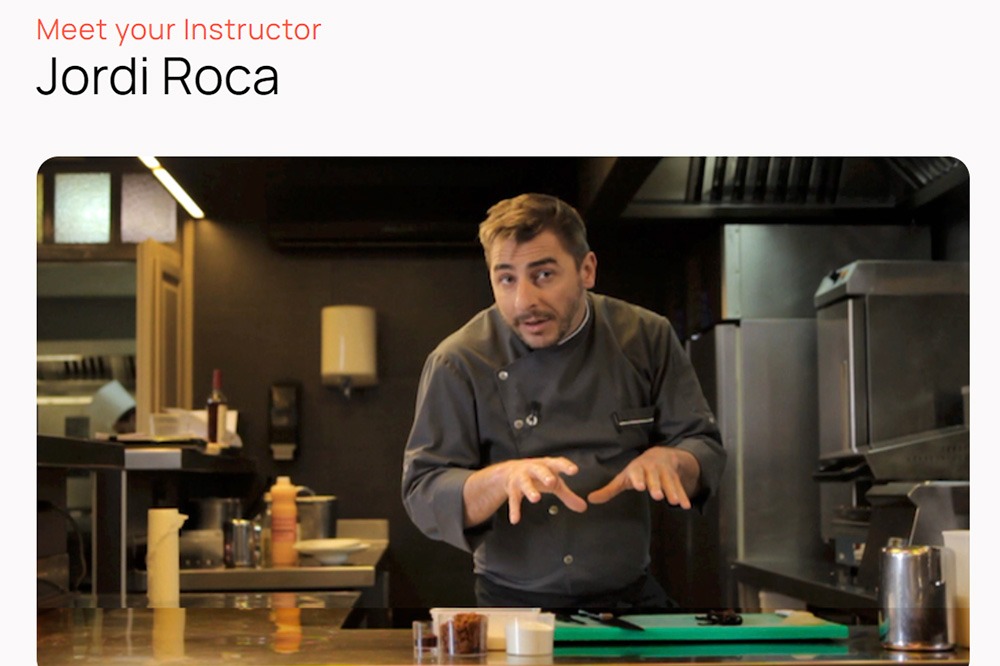
The power of tech
The pervasiveness of digitalization in society works in their favor. In addition to new AI tools helping to generate content, streaming platforms like Netflix have demonstrated the viability of subscription-based business models. Social media channels like Instagram have made haute cuisine go mainstream, spawning the phrase “phone eats first.”
Ber cites the Basque Culinary Center (BCC) as an example of “the democratizing power of technology.” Located in the northern region of Spain famous for its gastronomy, BCC is a nonprofit foundation that receives corporate sponsorship so they can offer courses, conferences and collaborate on culinary innovation projects and do research on gastronomy and nutrition. With the addition of an online component, people can now access training from wherever they are for as little as 6 euros a month, as opposed to attending in-person courses costing thousands of euros.
As tech accelerates content production and specialist knowledge becomes more universally available, the curation of content becomes paramount, so they can deliver content that is ever more relevant and accessible to users.
In the medium term, they expect to continue growing in the markets where they are already present, particularly in the Spanish- and English-speaking ones. “We will keep investing in the product, working hand-in-hand with the best to produce more and more content on global cuisine,” says Caleau. They also plan on increasing the experiences they offer, such as awarding qualifications, as they cultivate an ever more culturally diverse community united by cooking.
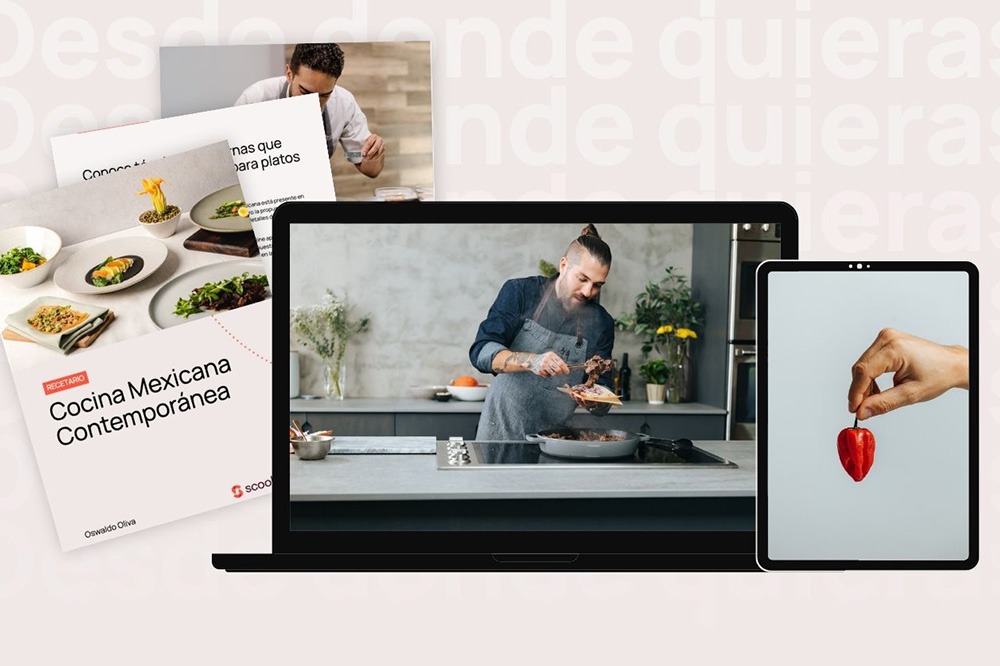
Learning to be leaders
The five Scoolinary partners are currently participating in the School of Founders, which IESE launched in 2022 to equip entrepreneurs with the skills, knowledge and mindsets they need to transform their startups into large, purpose-driven companies. For Ber, it’s “an opportunity to improve as leaders, spend time together and grow as a group.” He considers such training to be vital, since “one isn’t born an entrepreneur but it’s something that can be learned.”
Fortea highlights how enriching it has been for him “to learn from other business experiences and discover that other entrepreneurs from diverse sectors have faced many of the same challenges that a project like ours entails.”
The five teammates share a vision of conscious capitalism, as advocated by the School of Founders’ Director Sebastian Ross. In this sense, they try to amplify the voices of marginalized professionals in the hospitality sector, and they plan to offer scholarships for training. In addition, they donate a percentage of sales to initiatives that mitigate climate change, acknowledging the impact of food production and food waste on the planet. Scoolinary has obtained B Corp certification verifying the company is meeting high standards of performance, accountability and transparency.
“We believe the creation of companies and jobs should generate wealth but also make a positive contribution to society,” says Ber. A healthy recipe for doing business today.



